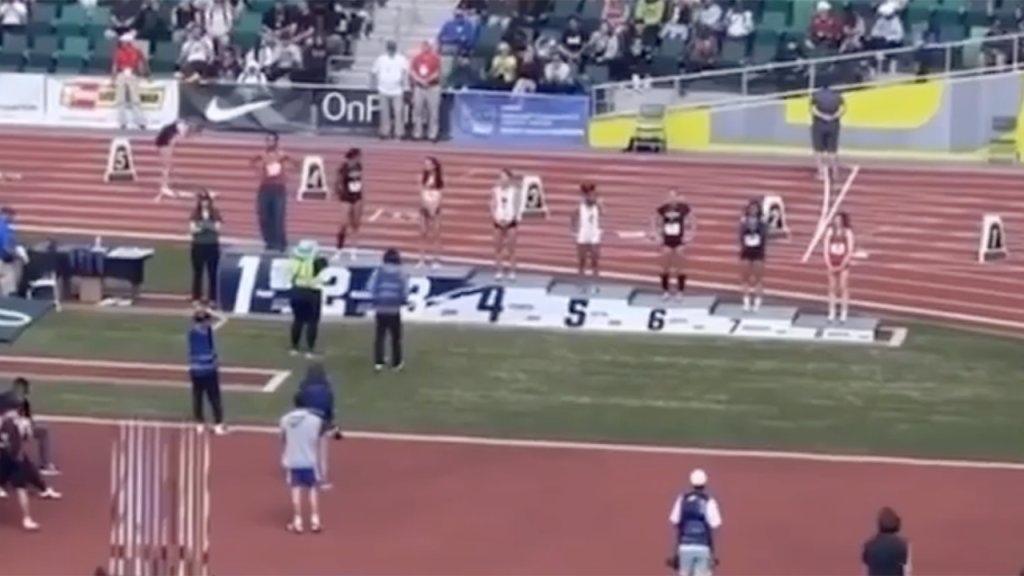A transgender high school runner, Aayden Gallagher, was booed while being crowned the Oregon Girls’ 6A 200-meter state champion. Gallagher won the state title by two-tenths of a second, and also had the best time of the preliminary heats in the event. Despite facing backlash on social media, the Oregon School Activities Association (OSAA) has a policy that allows transgender students to participate in high school sports according to their consistently asserted gender identity. This policy aims to provide a fair and safe environment for all students while promoting equality of eligibility and increasing opportunities for participation in interscholastic activities.
Gallagher’s participation in the Portland Interscholastic League Championship semifinals resulted in controversy, with the runner finishing first in the 400-meter preliminary event and second in the 200-meter preliminary event. These events led to Gallagher qualifying for the state finals, where she faced further backlash while competing. The meet took place in Eugene, Oregon, in the same stadium where the U.S. Championships and Olympic Trials are held, adding to the visibility and scrutiny of the event. Despite the negative reactions, Gallagher’s participation aligns with the OSAA rules on transgender student eligibility for athletics and activities, emphasizing the importance of treating students according to their gender identity once it has been consistently asserted.
The OSAA’s policy on transgender participation in high school sports aims to create a fair and inclusive environment for all students while allowing individuals to compete according to their gender identity. While Gallagher faced booing and negativity during her state championship win, the rules set by the OSAA prioritize equality of eligibility and increasing opportunities for student participation. The controversy surrounding Gallagher’s participation comes in the wake of a similar incident in West Virginia, where five middle school girls protested and refused to compete in a track and field event due to the inclusion of a transgender athlete. These incidents highlight the ongoing debate and challenges surrounding transgender inclusion in sports, and the need for policies that prioritize fairness and respect for all participants.
Gallagher’s success in the state championship, despite facing booing from the crowd, showcases her talent and dedication as an athlete. Her performance in the 200-meter and 400-meter events underscored her skills and abilities on the track, leading to her qualification for the state finals. While facing backlash and controversy, Gallagher’s participation in the meet was in accordance with the OSAA rules on transgender student eligibility, highlighting the importance of creating a supportive and inclusive environment for all athletes. Gallagher’s experience sheds light on the complexities and challenges of transgender inclusion in sports, and the ongoing need for policies and guidelines that prioritize fairness, respect, and equality for all participants.
The debate over transgender participation in high school sports continues to spark controversy and discussion, with incidents like Gallagher’s state championship win prompting scrutiny and backlash. While some may question the fairness of transgender athletes competing against cisgender athletes, policies like those set by the OSAA aim to create a level playing field while respecting the gender identity of all students. Gallagher’s experience highlights the importance of creating inclusive and supportive environments for all athletes, regardless of their gender identity. As conversations around transgender inclusion in sports evolve, it is crucial to prioritize fairness, respect, and equality for all participants, ensuring that every student has the opportunity to participate and excel in athletics in a safe and supportive setting.


